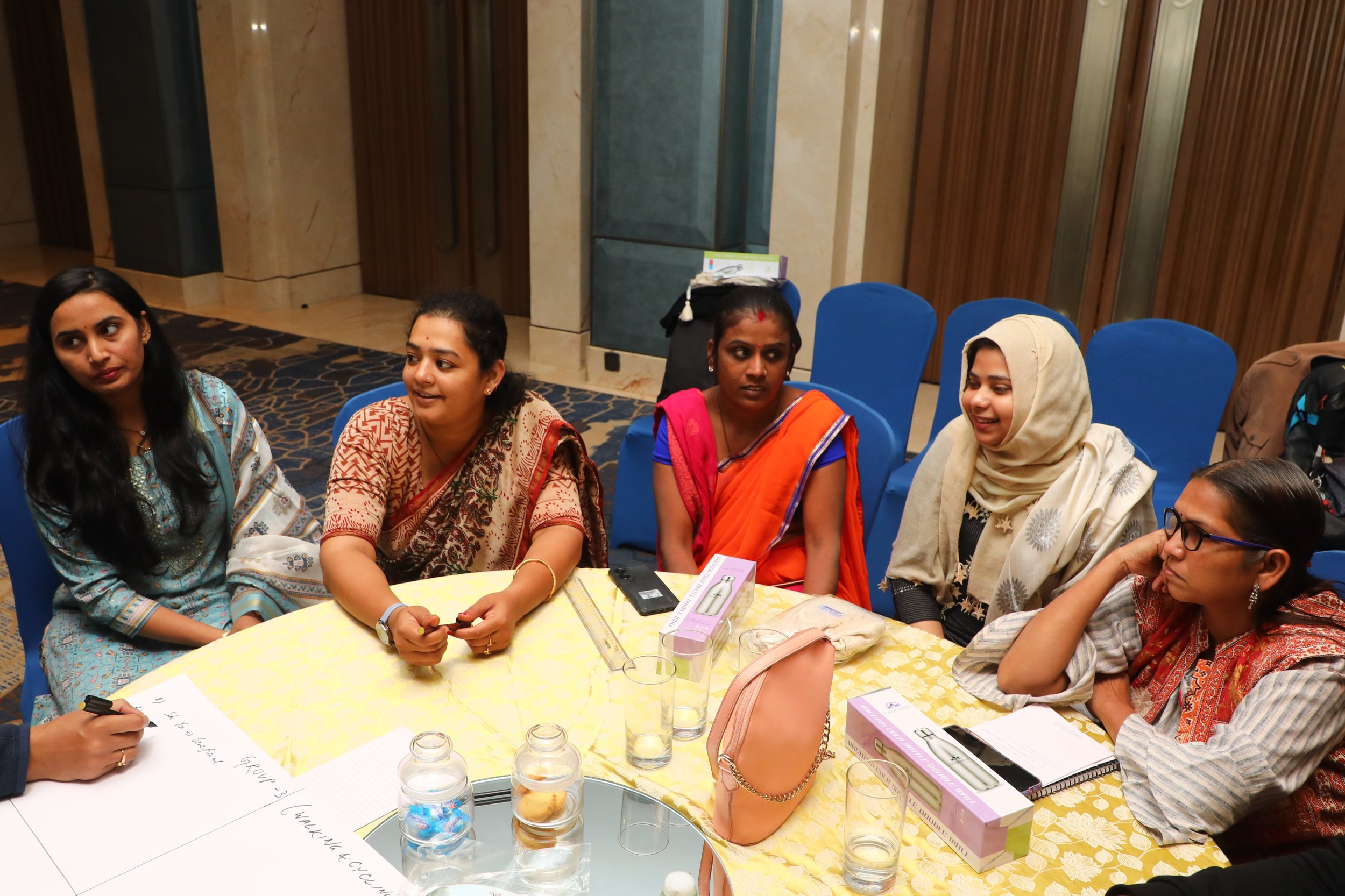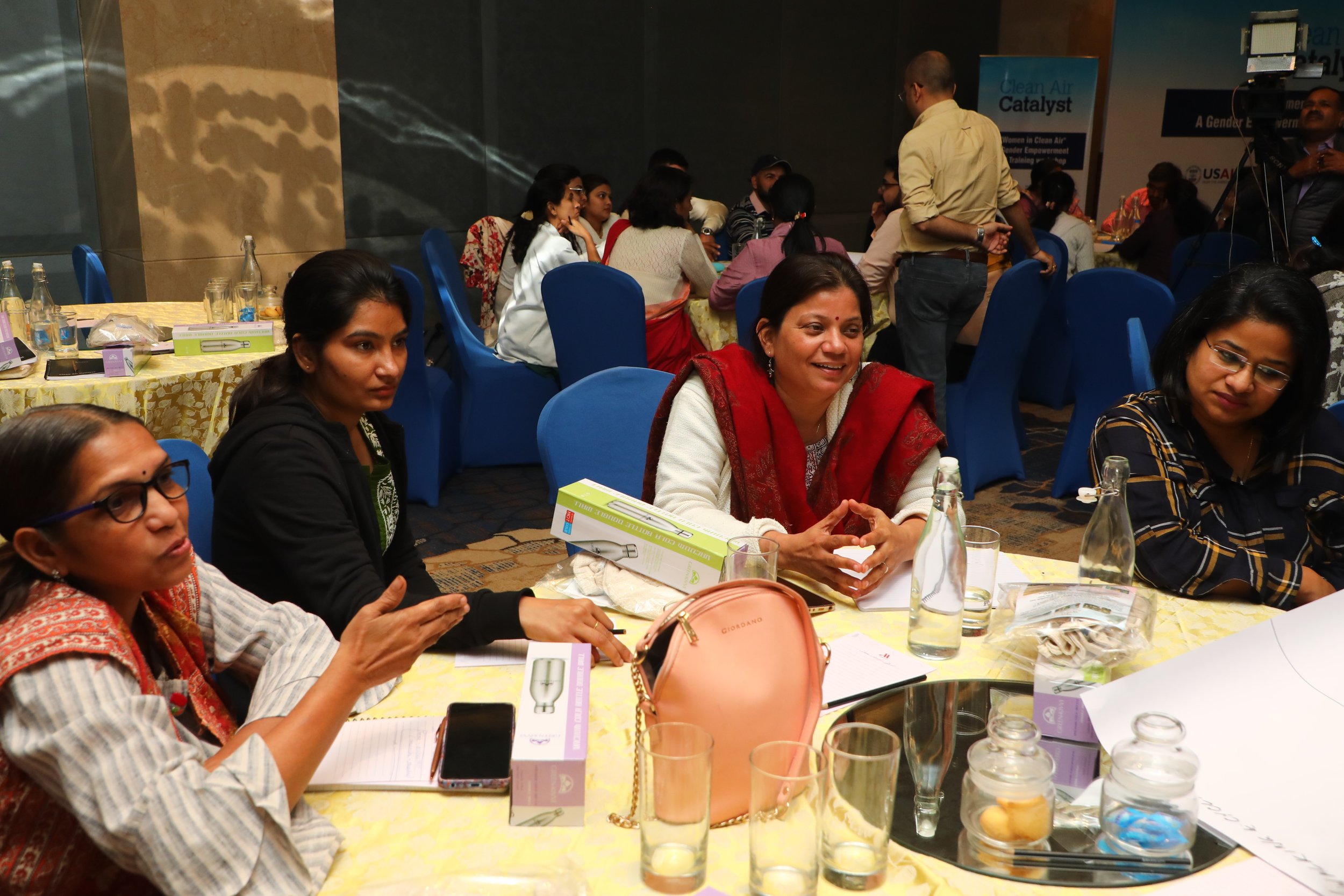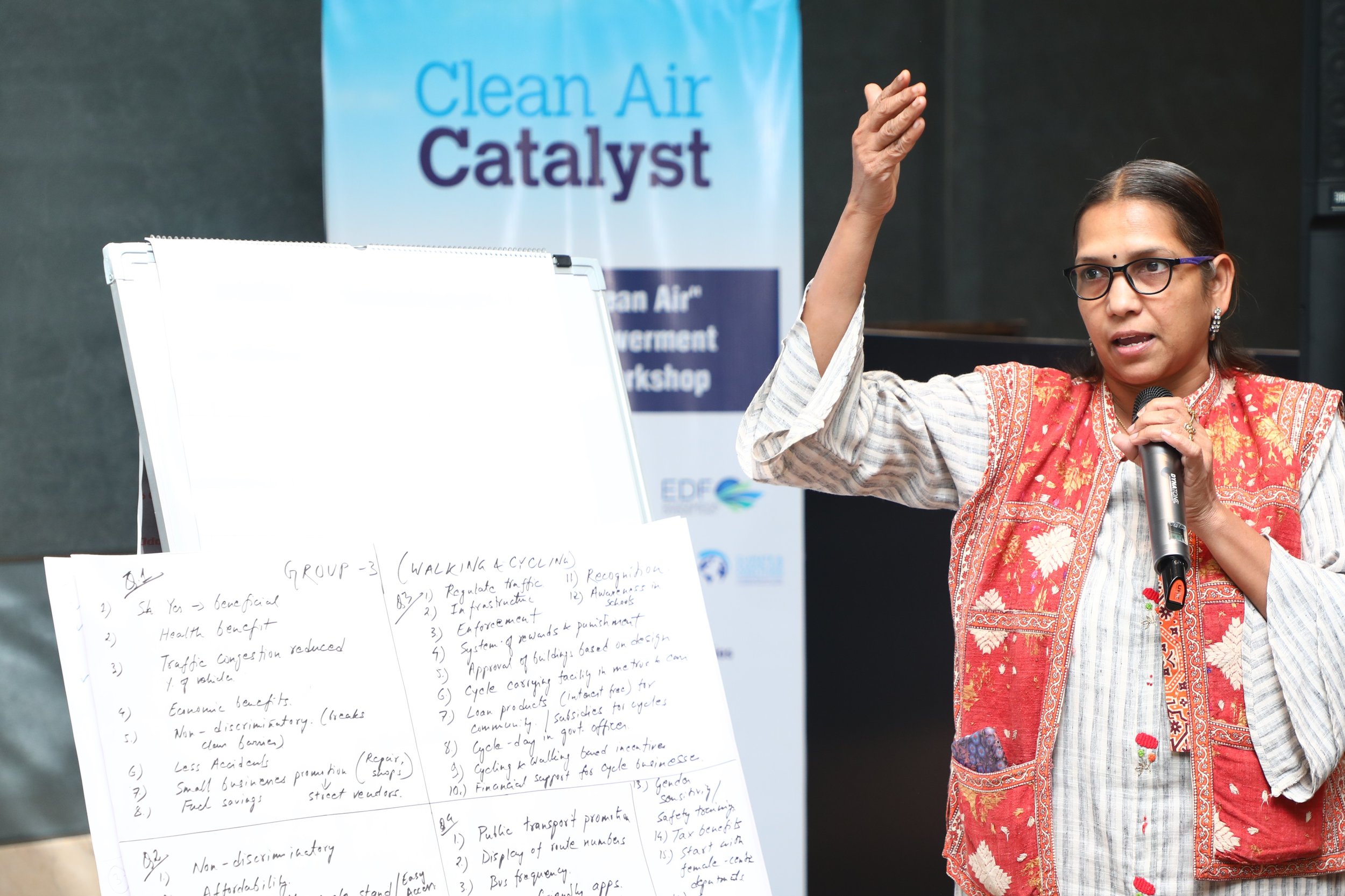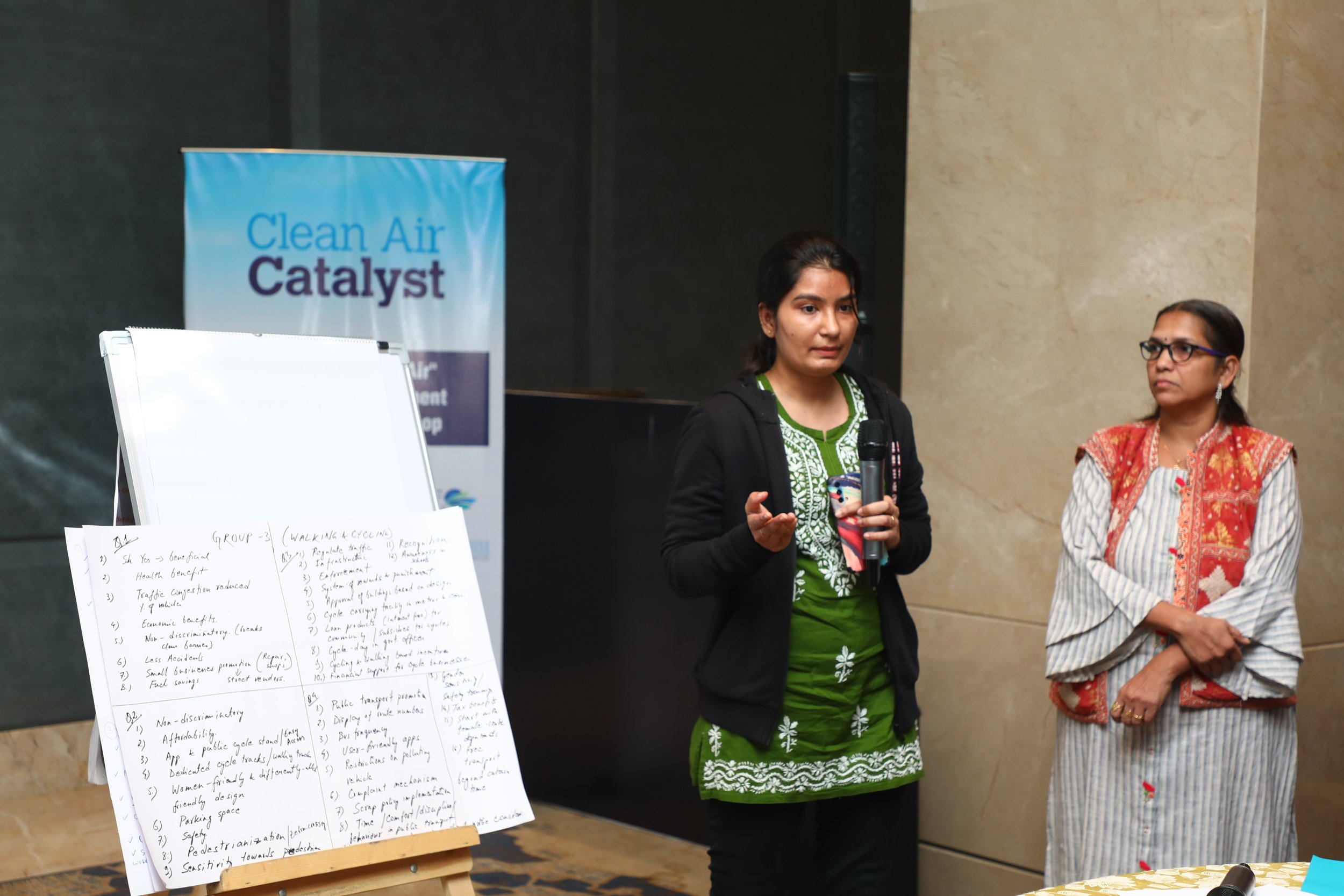Unveiling Solutions: A Local Clean Air Champion's Approach to Gender and Air Pollution in Indore
By Sudhir Gore, March 13, 2024
History shows that when women are actively engaged in community health, big change is possible. Indore’s growing movement for clean air is no exception. As Clean Air Catalyst works to help foster a coalition for clean air in Indore, it has created opportunities for women across sectors to learn more about local air quality issues, share their experiences with air pollution and how it intersects with other issues, and provide input into policy solutions. The Catalyst recently caught up with local health champion, Anupa Gokhale, program director at a community organization called Pahal Jan Sahayog Vikas Sansthan, to hear her insights on strategies for empowering women and girls in the fight against air pollution.
Over the past twenty years, Gokhale’s organization has worked across issues such as gender equality, education, healthcare, economic rehabilitation and environmental awareness in Madhya Pradesh. The organization has raised awareness about gender issues and relevant laws and helped families access social services and primary education. Gokhale also runs a clinic that provides basic medical services to people living in low-income neighborhoods.




Photo credit: Raju Pawar
What lessons can Indore’s Clean Air Coalition learn from your work on other issues regarding raising awareness and inspiring policy action on air pollution?
It’s important to focus on solutions. We know that air pollution most significantly impacts women and children. So, what can be done to protect them? First and foremost, we need to make the basic facts more widely available. Even now, people talk about the air being polluted, but they don't understand what the causes are or how it can be stopped. So, a vital first step would be to increase awareness of these essential facts.
What strategies can be implemented to engage women in urban areas like Indore?
The first method is to run awareness programs in schools and colleges. If a child knows about the issue, they will go home and tell their mother about it, in this case, that air pollution exists and we can stop it. In cities like Indore, we can also run awareness programs in multi-story buildings, where women can participate in these programs and learn about air pollution. You might have heard that women contribute less to air pollution, but they are the most affected. Why are they more affected? In part, because they don't understand how to prevent it.
What measures should policymakers prioritize to mitigate air pollution’s impact on women and girls?
Since we have seen that most local air pollution is caused by transportation, one key way to reduce its impact on women is to promote the use of public transport. When will women or differently abled individuals use public transport? When it is comfortable, safe and fosters a respectful environment. For these reasons, prioritizing improvements in public transportation access and quality is vital.
What role can public transport authorities play in fostering a culture of inclusivity and safety for women?
Creating safe spaces and enhancing public transport for women and children is the need of the hour in Indore. If pregnant women and women with small children are using public transport, employees of the public transport department must understand how to behave towards them. When attention is paid to these things, public transport ridership will increase, and along with it, air pollution will decrease.
How can awareness campaigns effectively educate the residents of Indore about the detrimental effects of waste burning on air quality?
Reducing air pollution caused by waste burning in different parts of Indore is also crucial, as it, like transportation, contributes significantly to pollution levels. Therefore, there is a need to raise awareness among Indore residents and implement penalties to deter this harmful practice.
From your experience, what other methods would you propose for reducing air pollution in Indore?
Pedaling toward sustainability, we should rediscover the joy of cycling. When we were young, we used to ride bicycles a lot, but why is that not happening now? The reason is that there are no places for cycling, no roads for walking. Paths and lanes should be created where cyclists and pedestrians can have space. Such infrastructure should be built so that there are pathways for cycling, parking spaces, and cycles available for rent.
What strategies can be implemented to encourage the adoption of cleaner cooking alternatives over traditional stoves?
People say using gas as fuel is increasing, and we are not burning wood or dung. However, 70-80% of people still use chulhas (traditional stoves). People are using stoves a lot to heat water in the winter season. Here, we also need public awareness efforts to educate and encourage the use of those mediums, which cause less pollution. This will make our air cleaner.
How do you intend to disseminate the insights gained from the Clean Air Catalyst’s workshop “Women and Clean Air” to raise awareness about combating air pollution?
In addition to our ongoing programs, I have plans to raise awareness within communities, particularly targeting women and children, about the importance of clean air and strategies for combating air pollution in their daily lives.
Pahal Jan Sahayog Vikas Sansthan is one of the local organizations represented in the Catalyst’s Clean Air Coalition, which will launch in Indore in Spring 2024 to help local officials choose and implement local policy solutions to air pollution.

